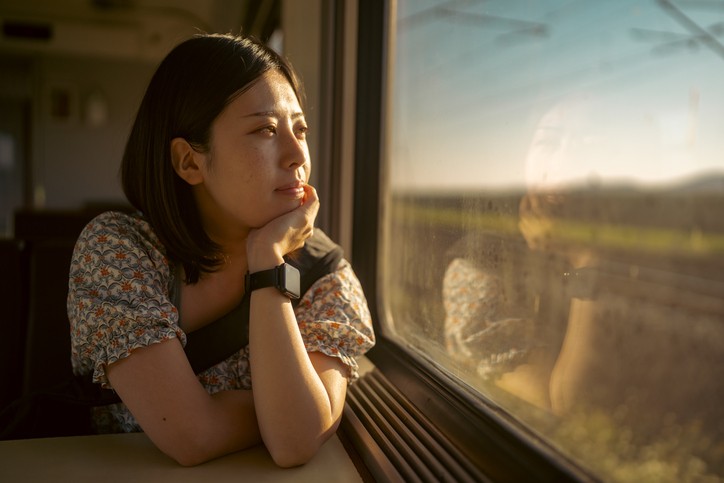
Could daydreaming actually be healthy for your brain?
UC, Children's experts join WVXU's Cincinnati Edition
The University of Cincinnati's Rhonna Shatz and Cincinnati Children's Stephen Becker joined WVXU's Cincinnati Edition to discuss research on how daydreaming can affect the brain of children and adults.
Shatz explained that daydreaming is a state of mind wandering that comes from activity of the default brain network.
"It has a purpose of guarding us...and it is helping us to not just process information coming from our senses, but to make sense of it," said Shatz, DO, adjunct associate professor, division director for behavioral neurology, the Bob and Sandy Heimann Endowed Chair in Research and Education in Alzheimer’s Disease in the UC College of Medicine and a UC Health physician. "So it is designed both for the moment what’s happening to us and how relevant is it to us as well as some work during sleep as well in terms of memory."
In a study of mice, Harvard researchers found daydreaming may help with neuroplasticity.
"Neuroplasticity is the ability of the brain to be resilient in the face of a threat or an injury," Shatz said. "It is also building access linkages so that if we lose a few we still have enough remaining for us to maintain function."
Becker, PhD, a professor in UC's Department of Pediatrics in the College of Medicine, pediatric psychologist and director of research in Cincinnati Children's Division of Behavioral Medicine and Clinical Psychology, discussed his research with children with cognitive disengagement syndrome (CDS), which includes daydreaming excessively and other related behaviors.
While CDS can negatively impact academic and socio-emotional functioning, Becker noted it also has some positive effects for children.
"When we’ve interviewed families...they also talk about, 'My kid is so creative or they’re really drawn to the arts,'" said Becker, who is also the codirector of Cincinnati Children's Center for ADHD. "So our goal is not to take away by any way, shape or form daydreaming, but how do we think about being able to manage it in a way in context and settings where it is more helpful compared to other settings where it’s more detrimental like in the classroom."
Listen to the Cincinnati Edition segment.
Featured photo at top of a woman daydreaming. Photo/Recep-BG/iStock.
Related Stories
Engineering Even Better Engineers
February 27, 2018
New Assistant Dean Whitney Gaskins in UC's College of Engineering and Applied Science is reaching out to underrepresented groups to recruit future engineers.
UC professor awarded Formula SAE Mentor's Cup
June 5, 2018
UC mechanical engineering professor Randall Allemang, PhD, receives the Formula SAE Carroll Smith Mentor s Cup for his outstanding mentorship as Bearcat Motorsports adviser.
